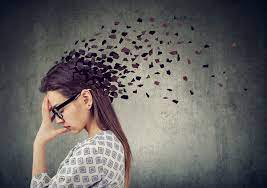
– Lalit Garg –
Neglect of the brain and memory is giving rise to Alzheimer’s disease, which has become one of the world’s most serious problems. Memory is the greatest treasure for people of all ages. The fast-paced and stress-ridden lifestyle of modern times has neglected both the body and the soul. The challenge of Alzheimer’s reminds us that a healthy brain is the foundation of a healthy life and a healthy society. Man is man because of his memory; when memories fade, identity too begins to blur. The loss of memory is not merely an individual’s weakness but a tragic erosion of one’s very existence. Because of its growing severity, the world observes World Alzheimer’s Day on 21 September every year. It is not merely a reminder of a health issue but also a warning that modern lifestyles, mental stress, and changing social structures have prematurely exhausted our brains.
Today, more than 50 million people worldwide suffer from dementia, and the largest share of these are Alzheimer’s patients. Alzheimer’s is a progressive brain disease where a person gradually begins to forget things. At first, small lapses occur—forgetting names, where an object was kept, or recent events. But over time, the forgetfulness worsens to the point where the patient may not recognize family members, familiar places, or even daily routines. According to the World Health Organization, this number could triple by 2050. Every three seconds, a new dementia patient is added somewhere in the world.
By 2025, over 55 million people are expected to live with dementia globally, and by 2050, this number may rise to 139 million, with Alzheimer’s being the most common form. In India alone, a 2023 study reported that over 9 million elderly people suffer from dementia, and the figure may rise to nearly 17 million by 2036. Data also reveals that women are disproportionately affected. Institutions like AIIMS and NIMHANS are working on early diagnosis and research. What is even more worrying is the rise of this disease among young people, not just the elderly.
The primary causes of Alzheimer’s include aging, genetic factors, and abnormal protein deposits in the brain. Lifestyle factors such as high blood pressure, diabetes, obesity, smoking, and cardiovascular problems increase the risk further. Research shows that excessive mobile phone usage can reduce memory and concentration by up to 35%. A University of London study found that merely keeping a mobile phone nearby reduces memory by 10%. According to IAMAI, India has 600 million smartphone users who spend on average 4.9 hours per day on their devices. AIIMS reports a rise in “digital dementia” symptoms among youth. The harsh reality of Alzheimer’s is that it does not only affect the patient but also the entire family. Loss of memory, reduced decision-making ability, repeated questioning, abnormality in language and behavior, and ultimately the loss of one’s identity—these create unbearable conditions not only for the patient but also for their loved ones.
Alzheimer’s is directly linked to the brain’s nerve cells. It is a progressive disease in which brain cells slowly die. Though the risk increases with age, it is not the only factor. An imbalanced lifestyle, stress, lack of sleep, mental inactivity, addictions, and unhealthy diet also contribute significantly. Gradually, the patient loses their ability to think, reason, and function, and their personality changes drastically. This disease poses not just medical challenges but also social and economic ones. The cost of care can break the financial backbone of families. For caregivers, it brings constant stress and fatigue. Many families even experience emotional distance and disintegration. On one side is the rising elderly population, and on the other is neglect and loneliness—together creating a grim crisis.
In its early stage, Alzheimer’s is marked by mild but noticeable memory lapses. In the middle stage, cognitive decline becomes clearer—difficulty in solving problems, speaking, or performing daily tasks. Complications such as difficulty swallowing or lung infections may arise. In the advanced stage, patients may lose the ability to speak, require full-time care, and even fail to eat or walk independently. They may suffer frequent falls, often leading to injuries. Unfortunately, there is still no complete cure for Alzheimer’s. Recently, a few drugs have been approved in the United States that may slow its progression in the early stages by targeting amyloid plaques in the brain, considered the primary cause. These may soon become available in other countries as well. However, medicines can only slow the disease for a limited time.
Therefore, the greatest “medicine” lies in prevention, natural therapies, and strong mental resolve. Regular exercise, a balanced diet, adequate sleep, yoga, meditation, continuous mental activity, learning new things, reading books, and maintaining social connections are all important ways to keep the brain healthy and active. By making small lifestyle changes, the disease can be delayed. But it is equally true that Alzheimer’s patients need compassion and empathy more than anything else. This is not just a medical but also an emotional challenge. Patients should not be treated as a burden; rather, their self-respect must be preserved. Patience, love, and sensitivity from family members can provide them with strength and dignity.
World Alzheimer’s Day is observed to raise awareness about the disease, reduce stigma, and inspire greater care and compassion for patients. The theme for World Alzheimer’s Day 2025 is “Ask About Dementia, Ask About Alzheimer’s.” Its aim is to increase global awareness, encourage open dialogue, and promote early diagnosis. Themes like these guide awareness campaigns worldwide and remind us that Alzheimer’s is not just a health problem but a social challenge—one that demands compassion, medical support, and strong public policies. With better understanding and greater human solidarity, we can help patients live with dignity and resilience.